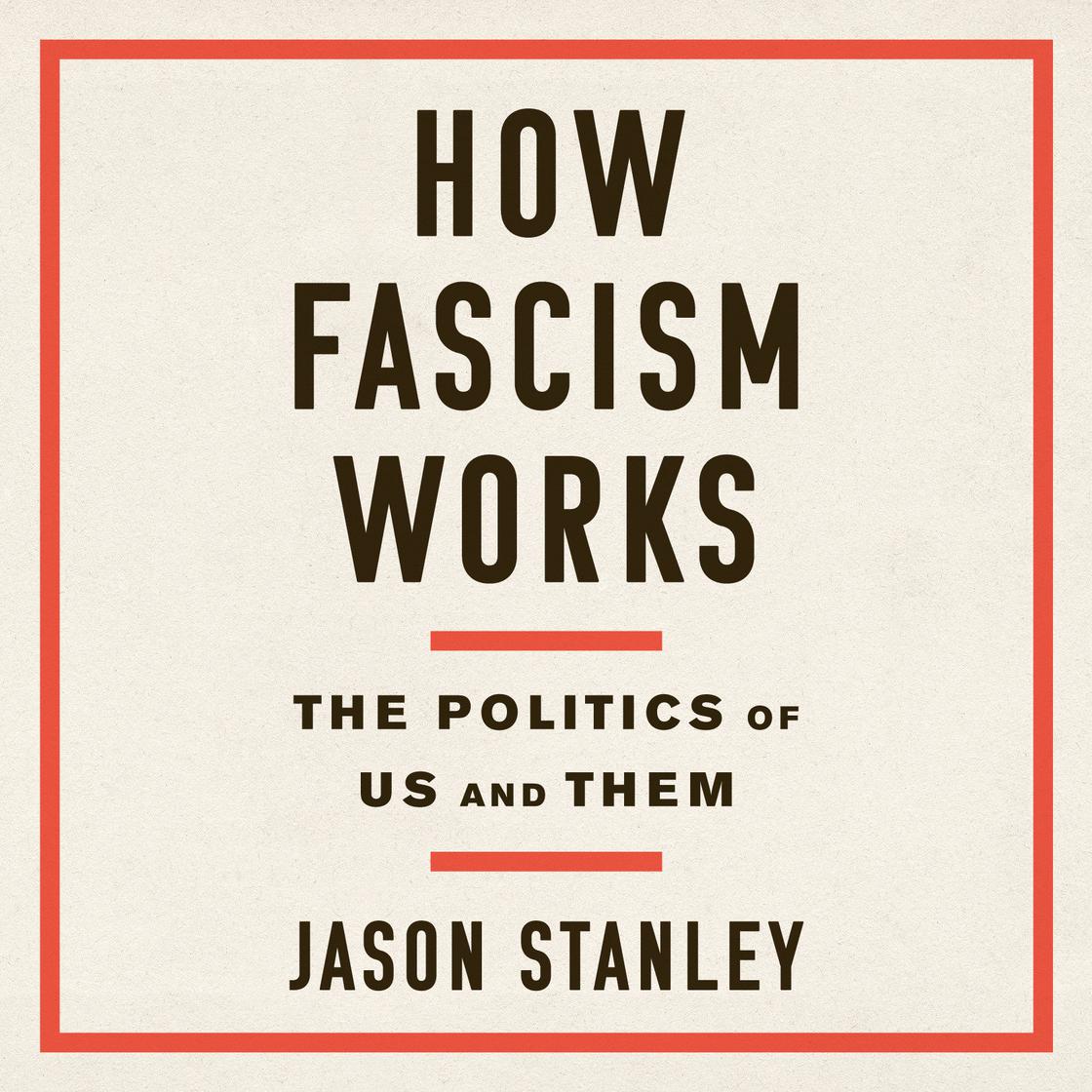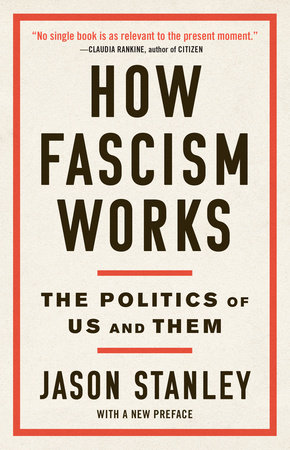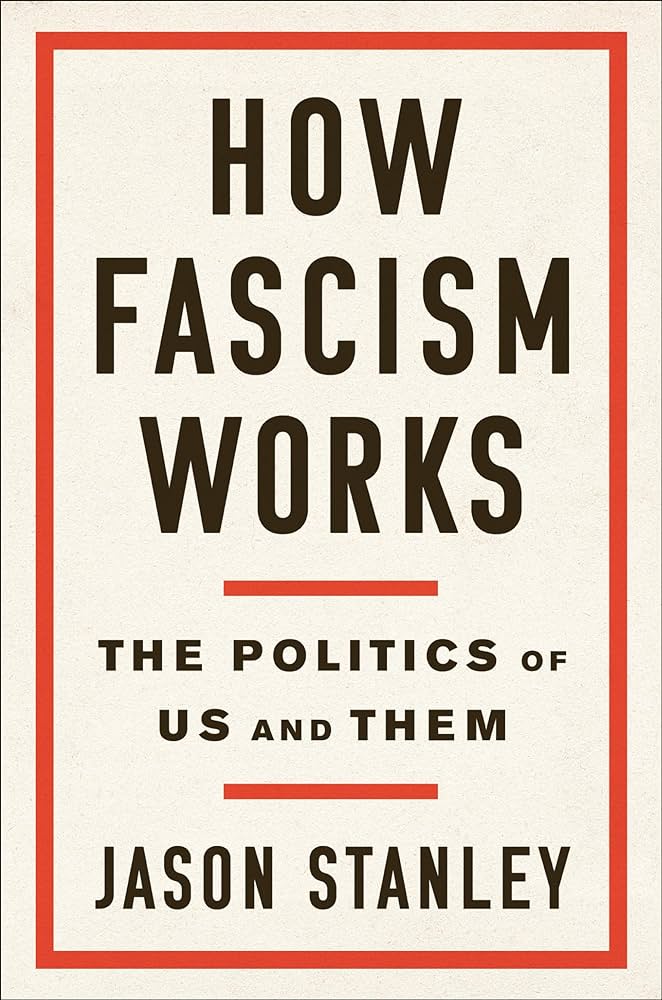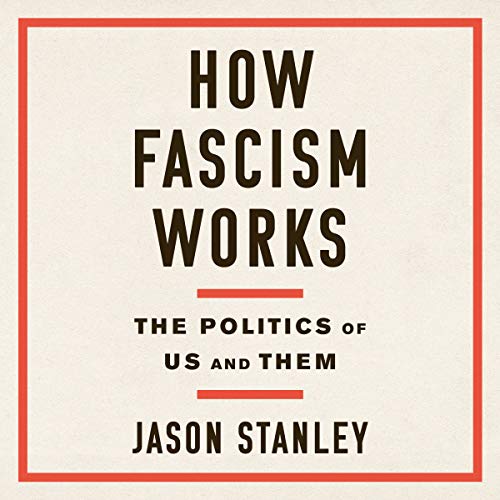Jason Stanley’s “How Fascism Works” Audiobook dissects the mechanics of fascist politics. It reveals how tactics manipulate populations and undermine democracies.
Jason Stanley, a renowned philosopher, explores the dangerous rise of fascist ideologies in modern societies. His audiobook, “How Fascism Works,” offers a detailed examination of the strategies used by fascist leaders. Stanley breaks down complex political manipulations into comprehensible concepts.
He uses historical examples to illustrate how these tactics erode democratic values. The audiobook serves as a crucial resource for understanding current political climates. It highlights the importance of vigilance and education in preserving democratic institutions. Readers gain insights into the subtle and overt methods employed by fascists to gain power and control. This work is essential for anyone interested in political science, history, or current affairs.
Introduction To ‘how Fascism Works’
Jason Stanley is a professor of philosophy. He has written many books on politics and society. His work focuses on how ideas shape our world. He teaches at Yale University. Jason is known for his clear writing and deep thoughts. His books are read by many people around the world.
The audiobook explains how fascism grows. It shows how leaders use lies and fear. The aim is to help people understand these tactics. The book covers ten steps that lead to fascism. Each step is explained with examples. The audiobook helps listeners spot the signs of fascism. It is a guide to protecting democracy.

The Ten Pillars Of Fascism
Fascism often glorifies a mythical past. This past is seen as pure and perfect. Leaders promise to return to this golden age. They ignore the complexities of history. This creates a simple and powerful story.
Propaganda is used to control public opinion. Repetition of false statements makes them seem true. Media becomes a tool to spread lies. People start to believe the manipulated truth.
Intellectuals are often distrusted in fascist regimes. Books and ideas are seen as threats. Critical thinking is discouraged. Blind loyalty is rewarded.
Leaders create a world of unreality. Facts and evidence are dismissed. Alternative realities become the norm. This makes it hard to know what is true.
Fascism promotes a strict hierarchy. Some groups are seen as superior. Others are marginalized and oppressed. This creates division and conflict.
Fascist leaders often claim victimhood. They blame others for their problems. This creates a sense of us vs. them. It fuels anger and resentment.
Law and order are used to control the population. Strict laws and harsh punishments are common. This creates a climate of fear. People are less likely to rebel.
Sexuality is often a source of anxiety in fascist regimes. Traditional roles are enforced. Non-conformity is seen as a threat. This creates a rigid social structure.
Fascist leaders warn of a moral decline. They compare modern society to Sodom and Gomorrah. This creates a sense of urgency. People are more likely to support extreme measures.
The phrase Arbeit Macht Frei means work sets you free. It was used in Nazi Germany. It promotes the idea that hard work is the only path to freedom. This justifies exploitation and abuse.
Historical Context And Fascism
European fascism began in the early 20th century. It grew strong in Italy and Germany. Leaders like Mussolini and Hitler gained power. They used propaganda to control people. They also blamed minorities for problems. Their rule led to World War II and many deaths. Fascism changed Europe forever.
Some leaders today use similar tactics. They spread misinformation to control opinions. They also blame others for issues. This can make people feel scared or angry. It’s important to recognize these tactics. Understanding history helps us see the dangers of fascism. We can then work to prevent it.

Fascism And Propaganda
Propaganda uses misinformation to control people. It spreads fear and hate. Fascists use simple slogans. They repeat lies until people believe. Propaganda targets emotions, not logic. It creates scapegoats for problems. Symbols and flags play a big role. They create a sense of unity.
Media is a powerful tool for fascists. They control news and information. Only their view is shown. Independent voices are silenced. Censorship is common. Media spreads propaganda quickly. Social media helps too. Lies travel fast online. Fascists use media to distract and deceive.
The Role Of Education
Fascist ideology often targets intellectuals. They see them as a threat. Books and ideas are dangerous to them. They want to control knowledge. Educated people might question their authority. This is why fascists attack education. They call intellectuals elitists. They say that educated people are out of touch. This is to make people distrust education.
In fascist regimes, schools become tools. They are used to spread propaganda. Textbooks are rewritten. History is changed. Teachers are often silenced. Students learn what the regime wants. This is to create loyal followers. Critical thinking is discouraged. Obedience is rewarded. This makes it hard for people to resist. Education becomes a way to control minds.

Fascism And Society
Fascism often targets minorities. It blames them for society’s problems. Minorities are seen as the enemy. This creates fear and hatred. People start to believe these lies. Discrimination and violence increase. Minorities face many challenges. They are often excluded from jobs and education. Their lives become very hard.
Fascist leaders create an “us vs. them” mentality. Propaganda is used to spread this idea. This helps to unite people against a common enemy. The “other” is blamed for all issues. This creates a sense of unity among the majority. People feel strong together. Fear and anger are used to control them. This makes it easier for leaders to keep power.
Critique And Analysis
Many scholars praise Jason Stanley’s work. They find his arguments insightful and compelling. His analysis on fascism resonates with historical events. Some academics, though, argue it lacks depth in certain areas. They believe more contextual examples could strengthen his points.
The audiobook gained popularity quickly. Listeners appreciate the clear and engaging narration. Many people find it eye-opening and informative. Some listeners feel the content is too dense. They suggest breaking it down into simpler segments. Reviews online are mostly positive and encouraging.
Conclusion
Jason Stanley’s “How Fascism Works” audiobook offers crucial insights. It uncovers the mechanics behind fascist ideologies. This powerful resource is essential for understanding and combating modern threats. Dive into this audiobook to stay informed and vigilant.



